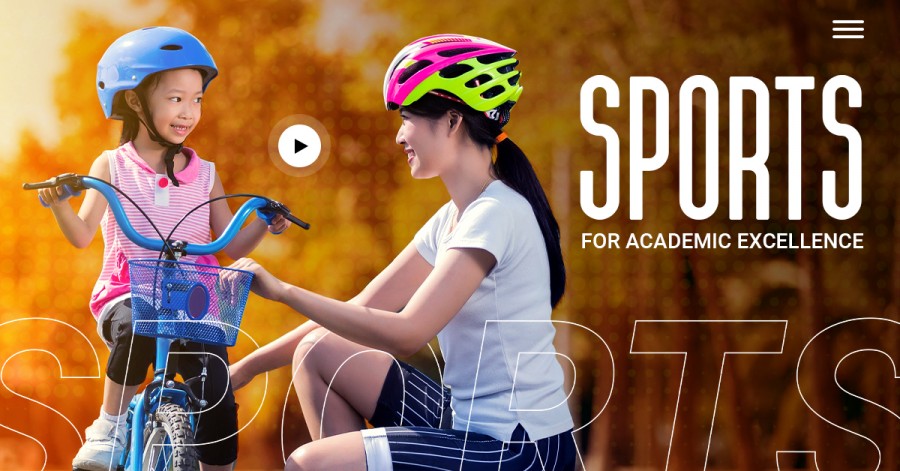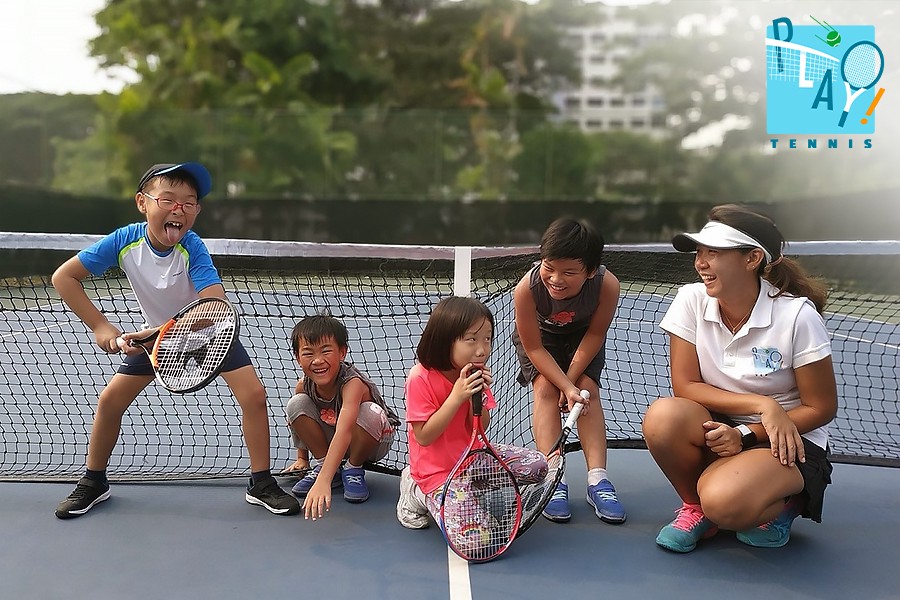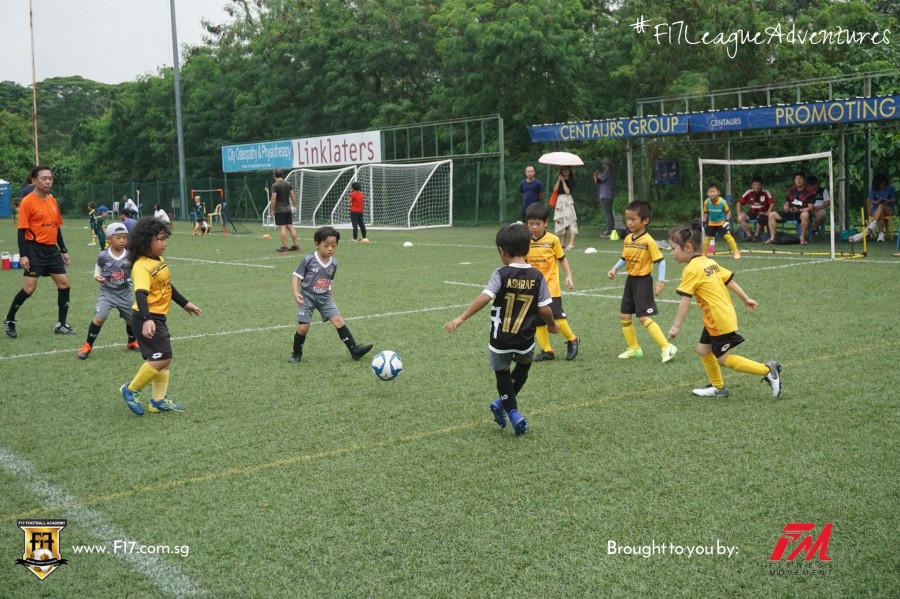Sports for Academic Excellence
Published 26 October 2019 at 02:12
Tickikids Blog Singapore > Digest > Sports for Academic Excellence

Academic excellence is of prime importance to us parents. For us the hallmark of successful parenting is the child getting into a reputable university for a good course. All we want is for our children to have a safe and secure future. Our entire parenting life, our focus is on getting the academics right. We do everything we can for this. However, in our focus on academic excellence, we forget one key element that contributes towards it but is neglected or ignored. That is doing sport.
I guess you are wondering, what is the correlation between academics and sports? Consider this real-life scenario below from one of my coaching sessions:
“He works so hard for his exams. I know he puts in a lot of effort. But on the eve of the test or exam or performance, he gets so nervous that he can hardly function. He would just sit quietly in a corner, paralysed. Or he would be on his device, for hours together,” said an anxious parent.

Photo Credit: Jerry Wang / unsplash.com
It is easy to get nervous when the time of performance comes. The brain goes in what is known as “fight or flight” mode. Our mind has been designed to keep the body safe. When it perceives threat or danger to the body, it kicks itself into action. It releases adrenaline. The job of adrenaline is to speed up the heart rate and flood our muscles with blood supply. In short, our body is ready to either take off, or fight the enemy. In modern times, most of the signals that the brain receives are not life threatening, they are just perceived as such by us. An example of this is exam fear. The brain cannot distinguish between real and imaginary stress, so it carries out the same mechanism as if it were under threat. One would usually visualise flight as someone taking off or running away physically. Shutting oneself off is one of the ways of “flight” or staying clear of the “danger”.
So how is this information relevant to our topic of discussion? We are talking about achieving academic excellence. If the brain, which is the central unit for all cognitive activities, goes on a freeze, would it be possible for the child to reach their highest potential?
There are numerous articles on the health benefits of sports. When we say health benefits, we are usually thinking and talking about physical health and capability of our bodies to fight diseases. The benefits of doing sport are countless and go far beyond this. In this article, I enlist the contribution sport has on youth in the development of their physical, mental, personal and academic well-being. This list is not exhaustive. What I include here is the elements that students need not just to excel in the studies but also to live a confident life in the Fourth Industrial Revolution.

Photo Credit: pexabay.com
Calm Mind
The fight-or-flight response (described above) is meant to be followed by a burst of activity. That’s the whole point. But the situations we stress about today, which leads to the activation of flight-or-fight response of the brain, does not result in bodily action. The “fight” is mostly done with limited body movement like an exam or performance. And the same goes for “flight”. Most children just end up playing video game to release stress or watch something on the net.
Instead, they should be moving their body. Exercise is a simple and effective way to calm the nervous system. It not only uses the energy created in the body, it metabolises (breaks down) excess stress hormones. Lower levels of stress hormones mean a calmer body and mind. A calmer mind is a productive mind. It allows optimal concentration on the area of focus. This in turn, contributes to easier assimilation and retention of knowledge.
Perseverance and Hard Work
Today, living in the era of smart devices, children are used to instant gratification. But as we know from our own experience, any form of study takes practise, effort, time and patience. Learning is an uphill journey. Practicing a sport can come handy in learning important life lessons of hard work and perseverance. Any form of sport requires one to practise the same movements again and again till it is the way it should be. For example in tennis, practicing your hand or leg movements during tennis classes till you get them right so you can get the stroke right. Getting the stroke right would give speed and elegance. When they see themselves improving, slowly but surely, it makes them comprehend the value of hard, incessant work. It is easier to see the progress that one makes because of regular practice in the physical world than in the academic world. The lesson learnt in the sporting world, crosses over to the academic arena and eventually into the professional and personal areas. Perseverance and hard work are essential traits, which once imbibed, manifest themselves in the academic and professional settings also. Moreover, going in for sports is the perfect way to improve the condition of the cardiovascular system and prevent heart diseases.
Photo Credit: Play! Tennis
Social Intelligence
Social Intelligence, as the name implies, is the capacity to know oneself and others. It is also known as been “streetwise” by some people. Quite unlike Intelligence, which is inherited, Social Intelligence is a learnt trait. It develops from experience with people and learning from success and failures in various social settings.
It entails following elements:
- Knowing the rules of the games and working with it and around it to your advantage;
- Non verbal cues: 80% of communication is non verbal.
Understanding what makes people tick.
- Expressing oneself assertively
- Being aware of what makes other people happy.
Social Intelligence is at the heart of any sport one plays. One needs to understand the rules of the games, follow the instructions and while doing all that learn to use them to one’s advantage. For example, to provide best in class professional football training for kids of all abilities, coaches teach youngsters to understand the body language and non-verbal cues of the opponent and anticipate their moves so they can plan the move accordingly.
Photo Credit: F17 Academy
If we look carefully, these are the elements that are expected of us in any setting: be it academic (school or college), professional (work) or personal (family).
As is evident from above, exercising or doing some form of sport helps in shaping a well-rounded individual. When a child is young, it’s a good idea to expose them to a variety of sports rather than pick a sport the parent thinks would suit them or look good on their resume. The idea is to first get them to develop a love for the sport and physical activity. These days there are so many to choose from and most sports have instructors, coaches and institutions providing sporting classes. Expose them to team sports like football, netball, volleyball, hockey, rugby, cricket, rowing or basketball. Alternatively, the individual sports one can participate in are dancing, gymnastics, martial arts, tennis, swimming, boxing, golf or skiing.
Lastly, gone are the days when universities used to look only at grades. It is a well-known fact that all top universities look at grades, extracurriculars and super-curricular (what you have done beyond books and classrooms in your area of interest). All this cannot be achieved from only focussing on books and tuitions. One needs an alert and active brain coupled with traits like perseverance and hard work. Sporting activities are a good way to pave a path for that. Not to forget, it's lots of fun. Encourage your child to develop a love for sport and watch them grow into balanced, healthy citizens of tomorrow.
Do you find it challenging to get your child to do what you would like them to do? Explore Smart Parenting through a Life Coaching. In just five personal sessions, discover newer ways to be a more effective parent.
By Shalini Bindal
About the Author
Shalini Bindal is a professional coach certified by International Coaching Federation (ICF). She brings about change in behaviour and habits through personal and group coaching sessions (in person or online). She focuses her coaching efforts on parents, youth and women. Before becoming a coach, she was a HR professional and Corporate Facilitator. A mother of two teenagers, Shalini has lived in India, Belgium and now in Hong Kong. Email her for a 30-minute free face-to-face or virtual session shalini@kaleidoscope-workshops.com.

